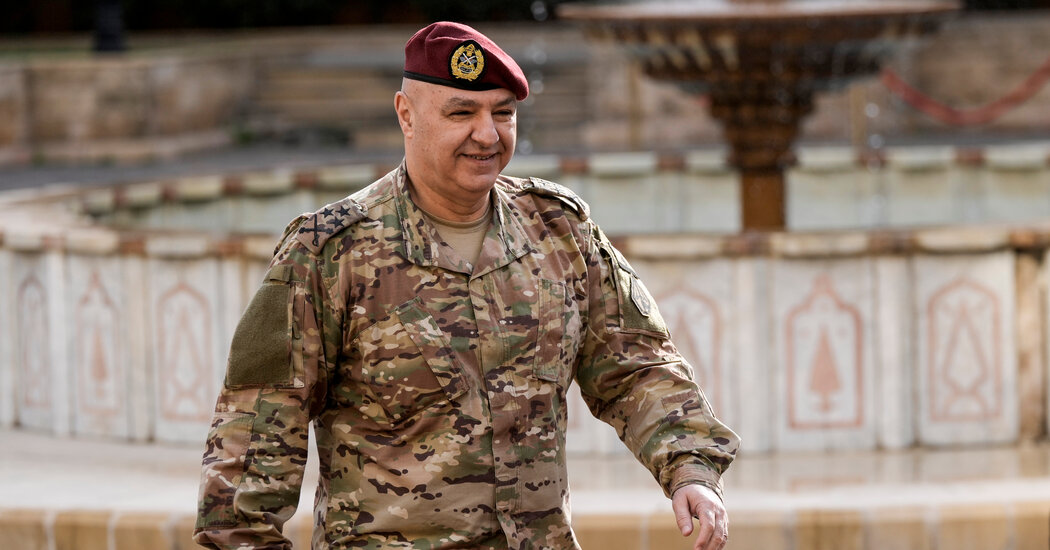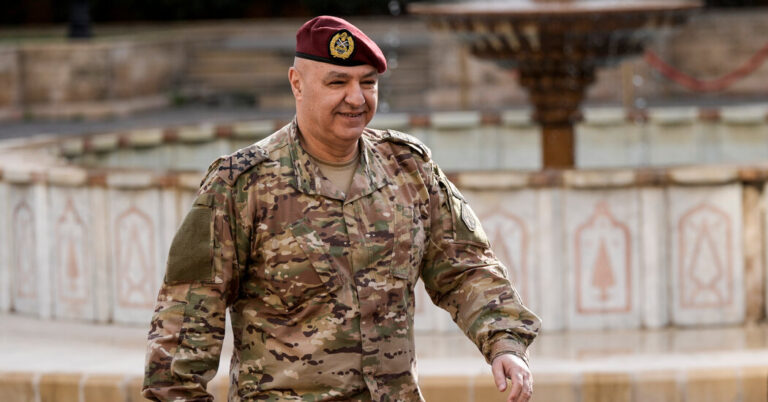Lebanon’s fractured parliament broke through more than two years of stalemate on Thursday to choose a new president, a key step toward stability for a country trying to recover from economic catastrophe and a devastating war.
Lawmakers elected General Joseph Aoun, commander of the Lebanese army, with an overwhelming majority in the second round of voting, after he failed to reach the necessary majority in the initial vote. It marked a turning point towards forming a government with a mandate to lead the country after more than two years of stalemate under a weak caretaker government.
The vote was seen as a crucial milestone for Lebanon, which has suffered a series of disasters in recent years, including an economic collapse and a war between Israel and the Lebanese militant group Hezbollah that has left much of the country in ruins .
Thursday’s elections – which often devolved into shouting matches – also came at an unnerving time for Lebanon and the wider region.
In neighboring Syria, a new, unprecedented government is attempting to chart a path to reconstruction after years of civil war. The fall of the Assad regime in Syria and the defeat of Hezbollah means a sudden loss of power for their patron, Iran.
Lebanon’s international supporters, including the United States, have implied that postwar financial support depends on the election of a president. According to the World Bank, the war between Israel and Hezbollah, suspended during a fragile 60-day ceasefire, has cost Lebanon $8.5 billion in damages.
Since October 2022, when Michel Aoun stepped down as president at the end of his six-year term, Parliament has failed in 12 previous votes to elect a successor. But Hezbollah, long a dominant political force in Lebanon, has been deeply weakened by the war with Israel, and analysts have noted that the group likely felt it had to make concessions because of the scale of Lebanon’s financial need.
Analysts believe the new president, who is not related to Michel Aoun, has US support and is widely respected in Lebanon. He has led the country’s armed forces since 2017, a role that has placed him at the helm of the only national institution that enjoys cross-sectoral support.
“He is seen as an acceptable figure throughout the Lebanese political elite,” said Lina Khatib, an associate fellow at Chatham House, a London-based research organization. “This is linked to the perception in Lebanon that the Lebanese army is an institution that operates in the national interest.”
Diplomats hope Aoun’s stature will allow him to exert continued influence over the military and lead to full implementation of UN Security Council Resolution 1701, a 2006 agreement that ended the previous war between Israel and Hezbollah but he failed to maintain the peace. They hope it can be a model for long-term peace once the current ceasefire ends.
Aoun is now expected to appoint a prime minister, in consultation with Parliament, and the prime minister will then form a government. With no faction holding a majority, the process could be a long one.





